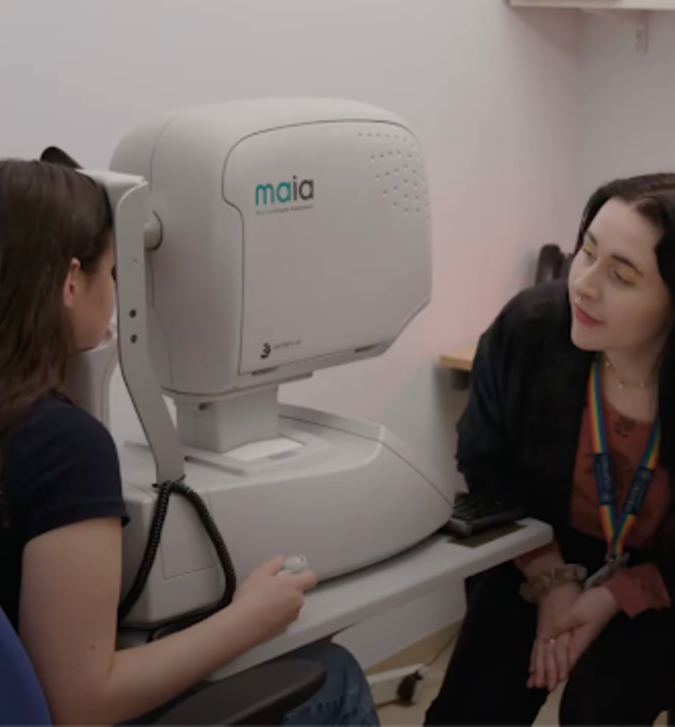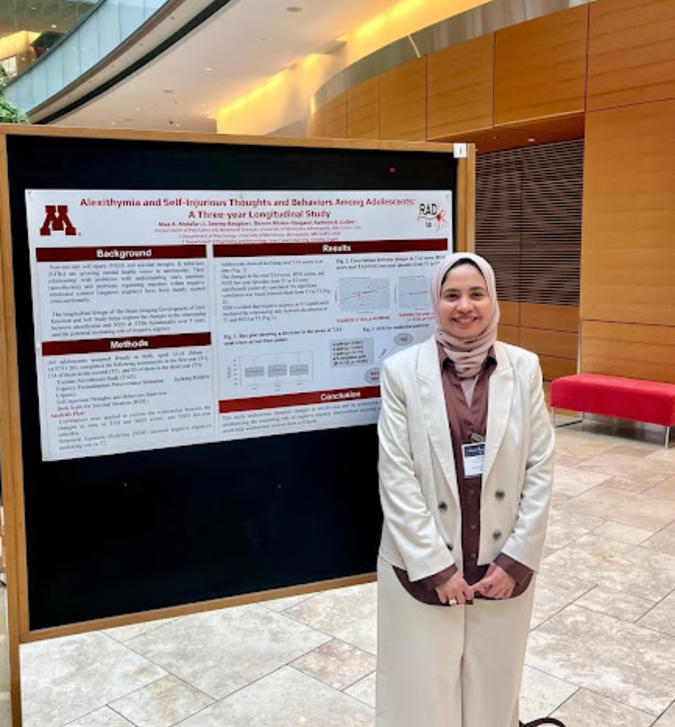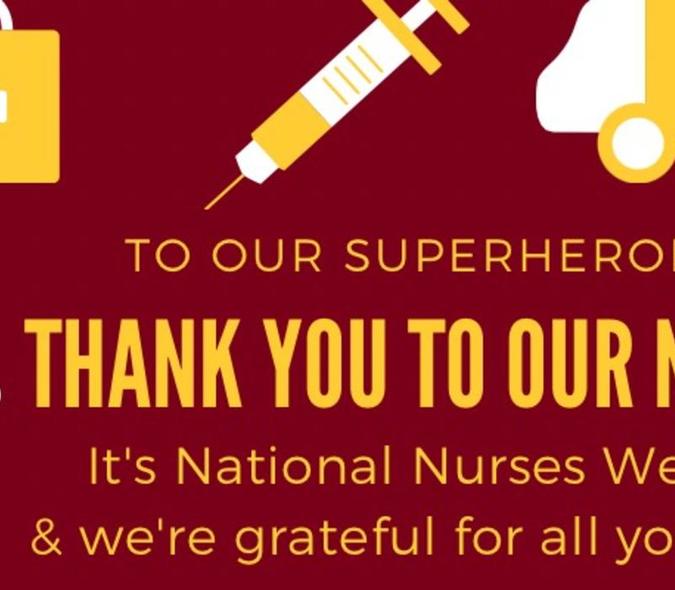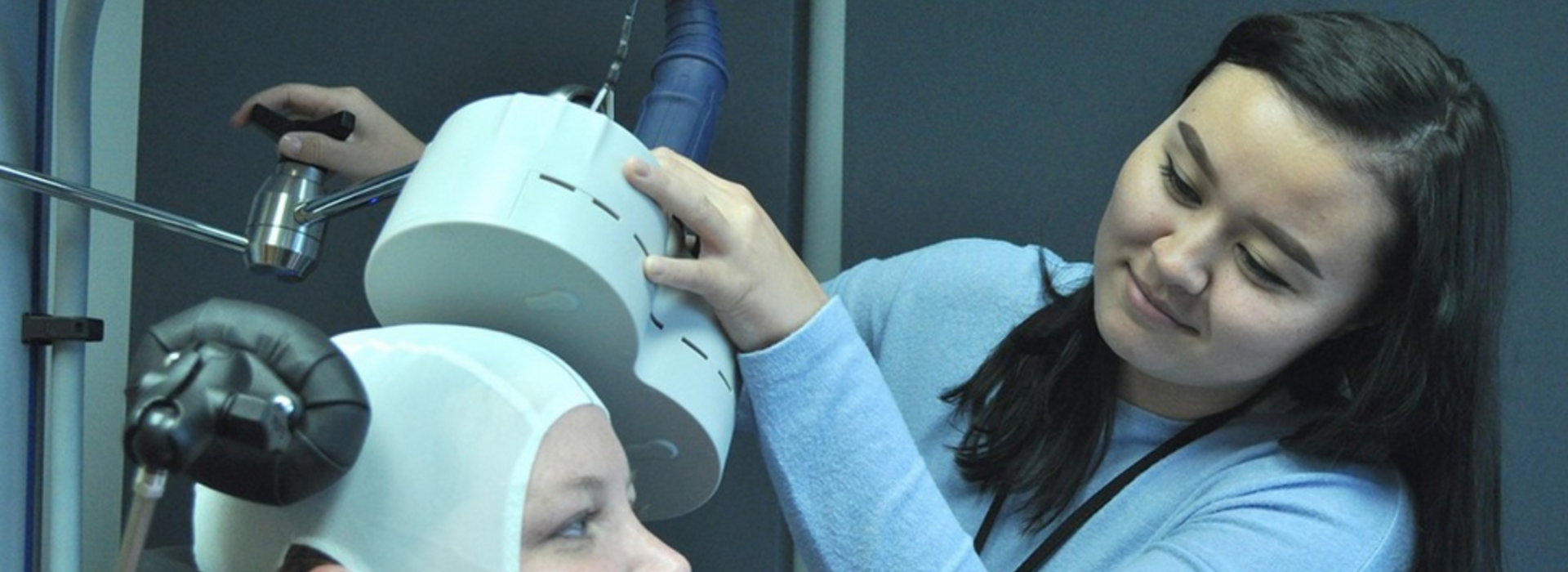
Fellowship program broadens access to neuromodulation education and research
A University of Minnesota collaboration has resulted in a unique year-long fellowship known as the Minnesota Neuromodulation Medicine training program. Funded by MnDRIVE (Minnesota’s Discovery, Research, and InnoVation Economy), the program’s intent is to develop neurology, neurosurgery, psychiatry, and rehabilitation medicine specialists into competent, independent neuromodulation subspecialists.
Multi-disciplinary experience
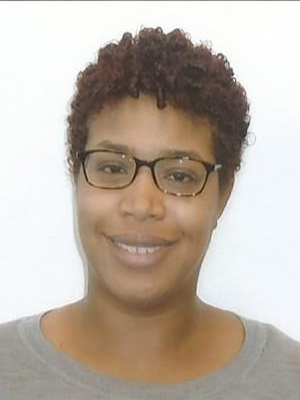
In early July, the program welcomed psychiatrist Saydra Wilson (pictured at left), MD, as its inaugural fellow for the 2020-2021 academic year. She will receive extensive training in the use of neuromodulation for clinical evaluation, treatment, and rehabilitation across a wide range for modalities, with emphasis on the specialty of the trainee – in this case, psychiatry. Although her primary relationship will be with the Department of Psychiatry and Behavioral Sciences, Dr. Wilson is expected to rotate in the other three disciplines involved in the program.
She is also expected to conduct research, working with Professor Ziad Nahas, MD, MSCR; and Assistant Professor Alik Widge, MD, PhD, of the Department of Psychiatry and Behavioral Sciences as her research mentors. Dr. Nahas leads M Health Fairview’s Interventional Psychiatry Program in St. Louis Park, MN, and has years of clinical experience with and research into neuromodulation, including transcranial magnetic stimulation (TMS) and electroconvulsive therapy (ECT). “Saydra is required to start a research project that’s at the intersection of at least two of the disciplines involved in the program,” he said. “Her unique interest in TMS is about what can you do cognitively and emotionally during the treatment to engage the circuit you’re modulating to obtain better results. We have a couple of related projects in mind.”
Important question
One of the important questions that Dr. Wilson will strive to answer during her fellowship concerns why minority patient representation is so low related to TMS and ECT treatments. “We want to try and understand why – is it a referral bias, a physician planning bias, or patient distrust,” said Dr. Nahas. “Saydra’s goal is then to see how we can improve our results and what steps we can take to implement the change.”
Neuromodulation has been of interest to Dr. Wilson since her work at a peri-natal mental health clinic in California. “I took care of women who were pregnant or had recently given birth,” she said. “When you work with these families, you can see how agonized they get about managing risks involved with using medication to treat mental health issues during pregnancy. Seeing how worried they were, I knew I needed to learn about treatments beyond medication.”
People got better
Dr. Wilson then worked in a clinic that enabled her to get experience with TMS – a noninvasive procedure that uses magnetic fields to stimulate nerve cells in the brain with the goal of improving symptoms of depression in individuals who don’t respond well to other treatments. “I saw a lot of people get better thanks to this treatment,” she said.
Her experience and interest inspired her to look for a neuromodulation fellowship. She was delighted to have found one at the U. “The department has a strong dedication to teaching early career psychiatrists,” said Dr. Wilson. “I get access to industry leaders in neuromodulation, not only researchers but also in clinical practice – people who have treated many patients. In addition, the U’s availability of amazing technology, especially related to neuroimaging, is a big asset.”
Larger part of practice
Neuromodulation will become a larger part of everyday psychiatric practice, according to Dr. Wilson. “By allowing learners to gain these skills early, more and more people can get access to these effective treatments,” she said.
Dr. Wilson earned her MD from Saint Louis University School of Medicine in Missouri and completed her psychiatric residency at the University of California San Francisco in Fresno. She is certified by the American Board of Psychiatry and Neurology. After graduation, Dr. Wilson spent 18 months working for TMS Health Solutions in northern California where she built her skills in prescribing and monitoring rTMS and theta burst for treating neurological and psychiatric disorders.

